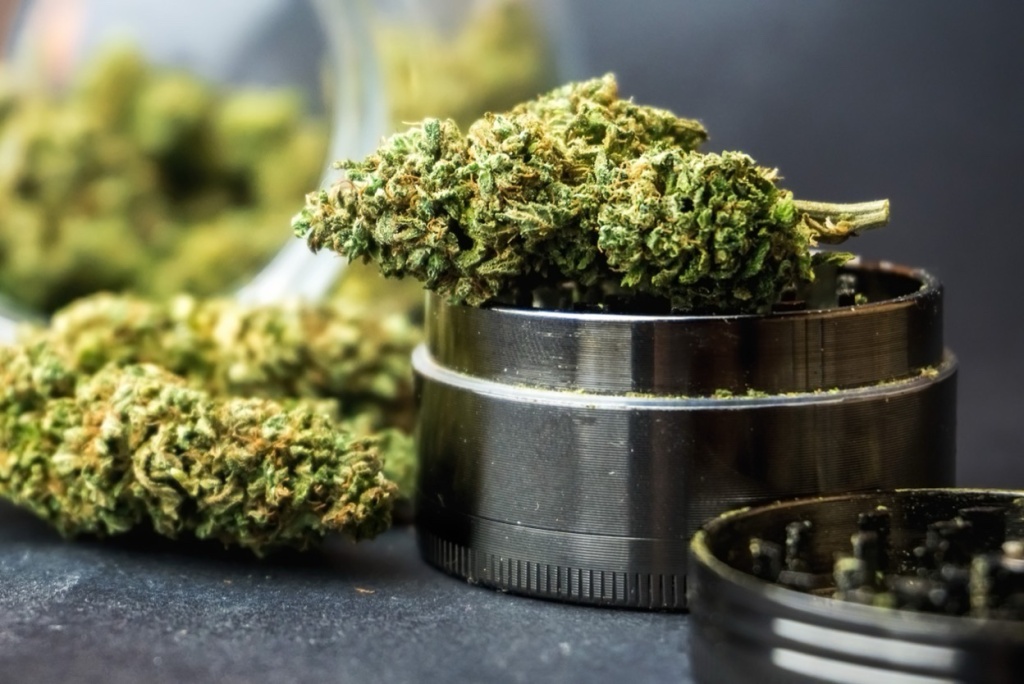Oregon CBN ban set as popularity skyrockets

A good night’s rest is essential. Those who have trouble sleeping will attest that waking up exhausted only snowballs into a day of lethargy or worse, over-caffeination. Some have turned to cannabis for restful slumber, and as the industry pinpoints what products might work, one cannabinoid has reigned supreme. Cannabinol (CBN) is a minor cannabinoid that occurs in small amounts in the cannabis plant, and many believe it helps kick in those coveted sleep-inducing effects.
RELATED: Everyday THC goods get you busted in these states
As weed becomes more mainstream, interest in CBN has only grown–with related sleep products popping up all over the country. One SFGate report indicates that CBN-infused gummies, mints, and other goods jumped 525 percent in market share over five years. This growth has occurred despite very little research or clinical data supporting if or how the cannabinoid works as a sleep aid. However, personal testimony is loud–people love CBN products for restful slumber.
How they make them is another story, and one northwestern state is now enforcing a rule to ensure CBN stays all-natural.
Oregon bans synthetic CBN
Beginning July 1, it will officially be illegal to manufacture and sell synthetically-produced CBN in Oregon unless it is Generally Recognized As Safe (GRAS) by the U.S. Food and Drug Administration (FDA). Companies also have the option to submit a New Dietary Ingredient Notification (NDIN) to the FDA. Those who receive no FDA objection will be considered in compliance. The consequences of using synthetic CBN have not been laid out yet.
The Oregon Liquor and Cannabis Commission (OLCC) adopted the rule in 2021 and set the deadline to meet it at 18 months, according to OLCC Director of Communications John Brady. After multiple deadline extensions cannabis businesses have had over three years to comply. Now the state is preparing to enforce the rule for the first time since it was established, and it may affect the entire market.
“It’s hard to give an exact number, but from our conversations with manufacturers, we believe most products were made with artificially derived CBN,” Brady said in an email.
There is no OLCC-approved chemical method to test how a business makes its CBN. Brands and manufacturers are expected to truthfully represent their products. This includes keeping good business records and production standard operating procedures, which should indicate that the product meets regulations. Suspected violations will be flagged by consumer complaints. In the event of one, the commission would investigate the facilities, records, and labs related to the questioned product.
Brady shared with GreenState that the rule was created with the consumer in mind.
“The process of synthesizing artificial cannabinoids can employ a wide range of solvents and reagents,” explained Brady. “If adequate steps aren’t taken, residual solvents and reagents can remain in the product. We instituted the ban to ensure that Oregon consumers are not exposed to these chemicals.”
Synthetic CBN might actually be the better option
Chemist Josh Swider, who asserts that synthesizing THC is dangerous, explained that, ironically, this well-intentioned move may create new issues. While turning barrels of CBD extract into THC could leave behind a slew of nasty byproducts, Swider plainly stated that the process of synthesizing CBN does not.
“It’s all relative to what you’re doing and doing it correctly,” Swider said. “CBN is the easiest one to create a pure product with.”
When cannabis ages, it oxidizes and loses hydrogen as a result. The dropped hydrogen converts THC into CBN. It is a natural byproduct in older or improperly stored cannabis products. While this process requires the least human intervention, Swider explained that it creates lower-quality CBN compared to the synthesization process.
Bluebird Botanicals held a public patent for an industrial CBN preparation method that uses hemp CBD with a final product described as “high purity.” Swider supports this possibility, sharing that synthesized CBN is often extremely pure–unlike aged weed.
The cannabis plant is complicated. After years of hiding in the shadows, weed is making its way into society, and the people want to know about every bit. It turns out that each molecule is highly unique and individualized. When it comes to synthesizing cannabinoids, that means potentially differing safety levels for everyone.
